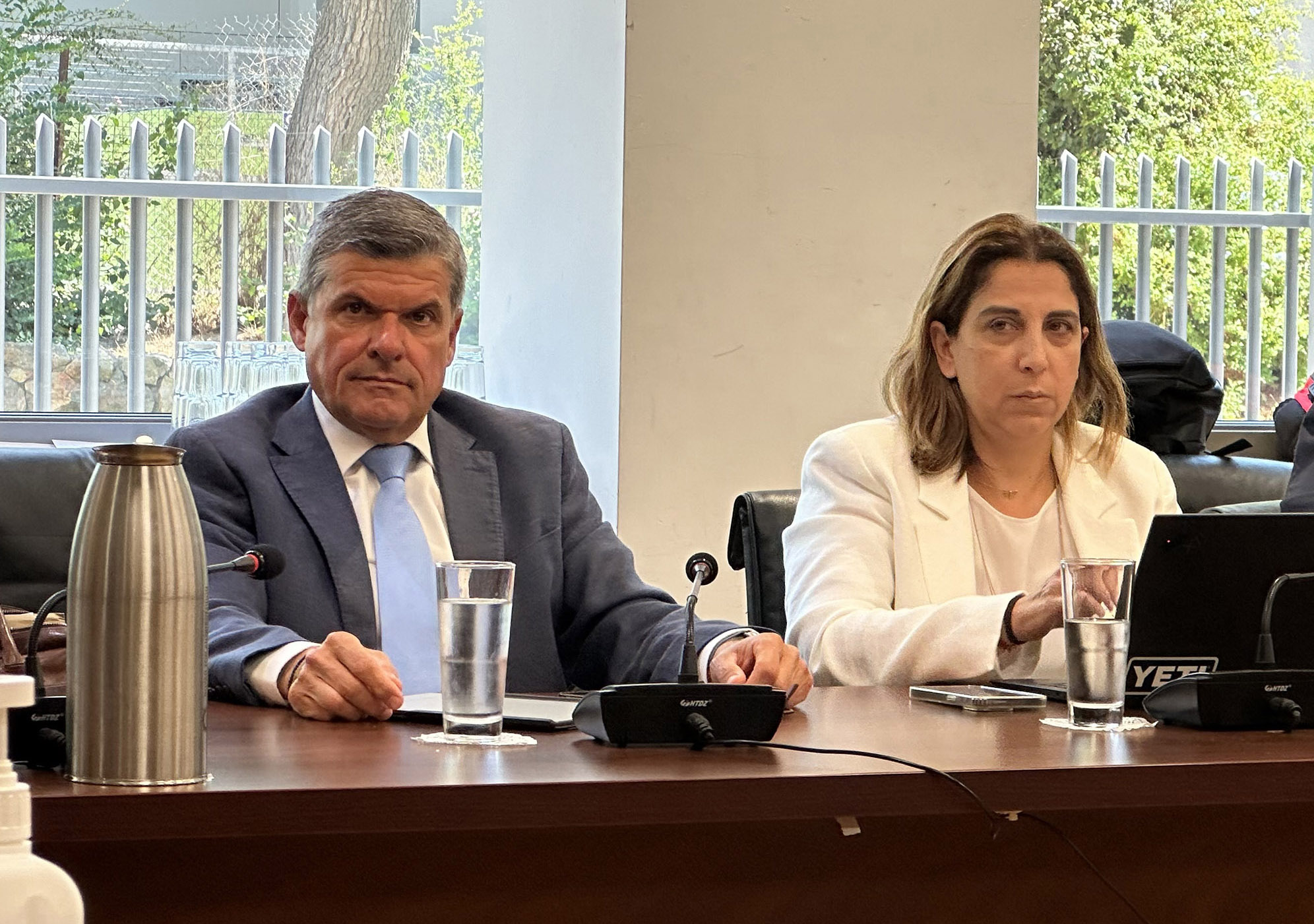Cyprus’ authorities “have not seen” the financing plan for the Great Sea Interconnector project, the finance ministry’s permanent secretary George Panteli said on Wednesday.
Speaking at an extraordinary meeting of the House energy committee, he said his ministry is at present “not in a position to put forth” any concrete statement regarding the project’s risks, neither from a geopolitical standpoint, nor regarding the potential impacts of the project on Cyprus’ economy and energy market.
This is the case, he said, due to “the absence of decisions and studies which have not been completed”, as well as “regulatory decisions which have not been finalised” over the matter.
In addition, he said the government was not given access to the interconnector’s financing plan and was not privy to the details of Greece’s independent power transmission operator (Admie)’s agreements with technology companies Nexans and Siemens for the manufacture of the interconnector’s cable and voltage convertors.
Admie is the body which will be implementing the project, and currently owns a 51 per cent stake in it.
Panteli said the fact that Cyprus was not kept privy to these decisions and the details of the deals with Nexans and Siemens has effectively scuppered the government’s efforts to carry out its own evaluation of the project.
“All of this does not allow for a technical due diligence investigation,” he told the committee.
At this point, Energy Minister George Papanastasiou, who was also present at the meeting, said the issues Panteli raised “will be answered if and when the Republic of Cyprus decides to join the project”, and pointed out that such a decision had not been made yet.
Admie has since March been demanding that Cyprus pay €100 million to buy itself into the project, but the Cypriot government’s stance on the matter has remained steadfast, demanding access to a cost-benefit analysis and the time to evaluate it before coming to a final decision.
With this in mind, Panteli told the committee on Wednesday that he disagreed with the idea that the government could only be party to the details after having bought in, saying “the implications of this are not only about whether or not the Republic will join the project, but more generally the impact on the economy.”
Papanastasiou then responded, saying a “healthy dialogue” was taking place between the two ministries, and that “the two philosophies will converge when the time comes.”
On the project itself, he said that “in terms of energy, it is correct for many reasons”, but noted that if there are “hidden traps” in the plans, “it is right to examine them so as not to fall into them”.
The matter of “geopolitical risk” was also raised at the meeting, with Papanastasiou saying the matter is “down to” Admie, after Admie had asked the Cyprus Energy Regulatory Authority (Cera) to “diversify its regulatory framework to cover the geopolitical risk” of the project.
The current regulatory framework provides that the matter of covering costs of the project should it not be completed due to “geopolitical factors” “may” be considered by the regulatory authority, with Papanastasiou and Cera chairman Andreas Poullikkas both in agreement that the current laws on the matter suffice.
Papanastasiou said the “risk lies with [Admie]”, while Poullikkas said the matter of geopolitical risk has nothing to do with regulations.
He pointed out that Admie had requested six regulatory changes, and that Cera had accepted four of them.
“The two that are left are very important, and we responded in writing to Admie that Cera’s position is clear: consumers cannot shoulder any costs without benefitting,” he said.
The issue of “geopolitical risk” relates to possible interference with the laying of the cable by Turkish warships in the Aegean. Admie had sought reassurances that should anything occur beyond its control which would hinder the interconnector project, including Turkish interference, it would be able to recover the investments it had made up to that point.
In addition, it had been reported earlier in the week that Cera was “under immense pressure” – both from the European Commission and from Admie – to consent to electricity consumers in Cyprus paying a fee toward the project before the cable goes live.







Click here to change your cookie preferences